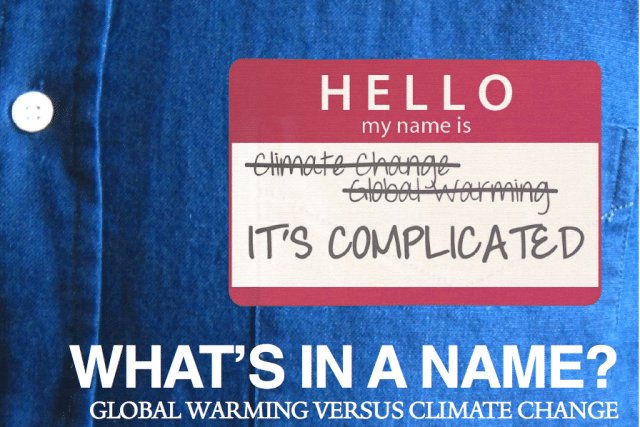Scientists, politicians, environmentalists and journalists have long been stymied by the difficult task of engaging people so that they will agree to begin curbing toxic greenhouse gas emissions.
Some people deny — out of fear or vested interests — that there are increased levels of carbon dioxide in our atmosphere, some say if there is a problem it isn’t caused by humans and some just don’t seem to care.
A U.S. study, What’s in a name: Global warming versus climate change (PDF), released last week has found, however, that confusion over language is another reason for a lack of concerted action to deal with what United Nations Secretary-General Ban Ki-moon says is the greatest threat to humankind.
There is a huge difference in how Americans regard the terms “global warming” and “climate change,” according to a 31-page report by the Yale Project on Climate Change Communication and the George Mason University Centre for Climate Change Communications.
The report states that “global warming” and “climate change” also “activate different sets of beliefs, feelings, and behaviors, as well as different degrees of urgency about the need to respond.”
The academics found that the term “global warming” is associated with greater public understanding, emotional engagement and support for personal and national action than the term “climate change.”
The report said that using the term “global warming” is associated with greater certainty that the phenomenon is happening and more intense worry about the issue. It also suggests that “global warming” conjures up much more severe images than “climate change.”
“Overall, Americans are +13 percentage points more likely to say that global warming is a ‘bad thing’ (76%) than climate change (63%),” the report noted. “In particular, they are +10 points more likely to say global warming is a ‘very bad thing’ (33%) than climate change (23%). By contrast, Americans are +12 points more likely to perceive climate change as a good thing (33%) than global warming (21%).
In addition, the report noted that the two phrases have been used by politicians to advance certain positions.
“Prior to the 2002 mid-term elections, Frank Luntz, a Republican pollster and strategist, gave the George W. Bush administration the following advice in a secret memo about how to win the ‘environmental communications battle,’ including global warming,” the report said.
Luntz’s recommendation to Republicans was to use the term climate change instead of global warming:
“It’s time for us to start talking about ‘climate change’ instead of global warming…‘climate change’ is less frightening than ‘global warming.’ As one focus group participant noted, climate change ‘sounds like you’re going from Pittsburgh to Fort Lauderdale.’ While global warming has catastrophic connotations attached to it, climate change suggests a more controllable and less emotional challenge.”
The report added that a New York Times analysis found the term “global warming” appeared in a number of Bush’s environmental speeches in 2001, but after receiving Luntz’s memo, the White House shifted to consistently using “climate change” instead.
Subscribe to our newsletter
Stay up to date with DeSmog news and alerts






